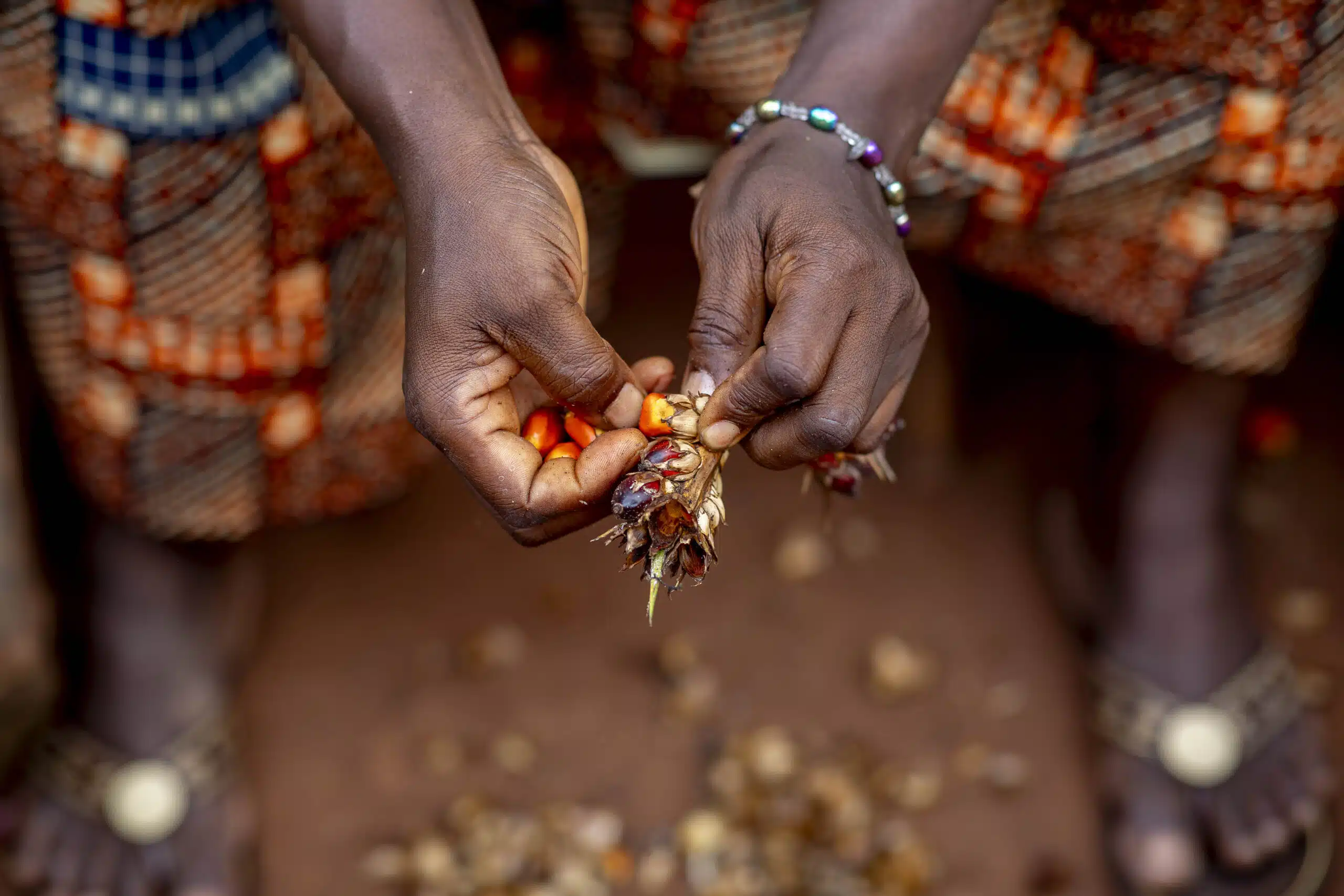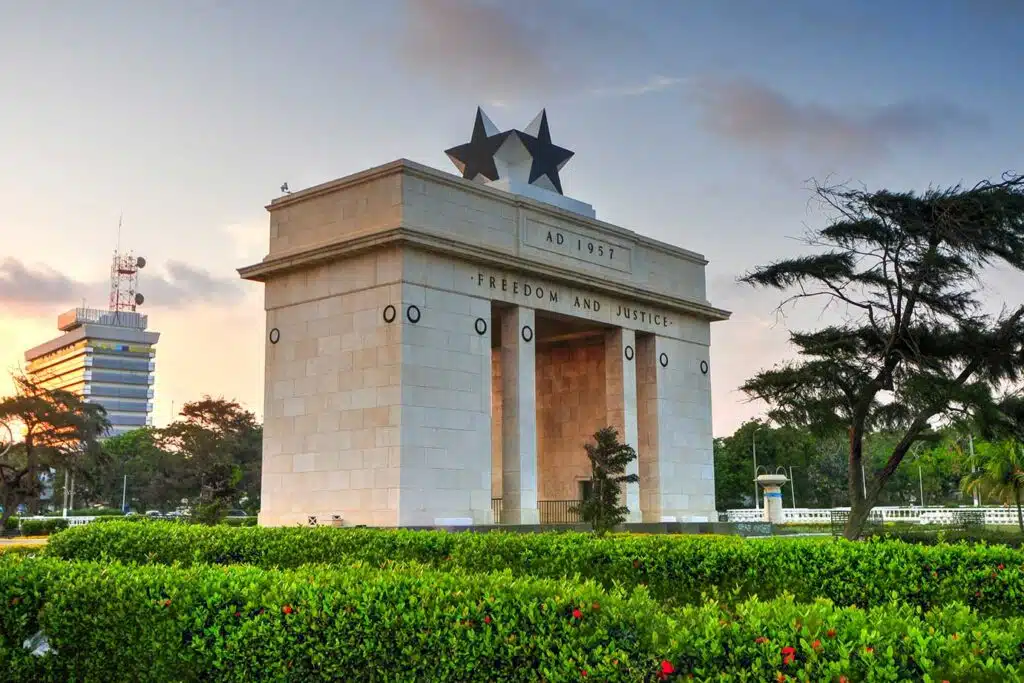The client
The client on this project is an international non-profit organisation, whose primary focus is on conserving critical ecosystems and promoting sustainable development. They work in partnership with governments, corporations, and other NGOs to develop scientific research and improve environmental policy. Their work includes protecting the world’s most biodiverse regions, trying to mitigate the effects of climate change, and supporting sustainable livelihoods in local communities.
As part of their mission, the client has established a long-term presence in West Africa, where they have worked for decades to improve the management of protected areas. This work included facilitating incentive-based community conservation, enabling sustainable production, and developing national environmental policy.
The problem
Much of West Africa’s natural ecosystems have been threatened by unsustainable logging, mining, and agriculture. Ghana, for instance, experienced a 24% decrease in tree cover from 2001 to 2023, resulting in the loss of approximately 1.64 million hectares of forest. Much of this region also suffers from extreme food insecurity. As of December 2024, more than 40 million people in West and Central Africa were struggling to feed themselves, with projections indicating this number could rise to 52 million by mid-2025. The situation is particularly dire during the lean season (June to August), when food stocks and household savings are lowest.
The palm oil and cocoa sectors are two of the largest contributors to deforestation in West Africa in recent years. The forthcoming European Union Deforestation Regulation (EUDR) will significantly impact palm oil and cocoa as it places the onus on producers, traders, and exporters to demonstrate that their supply chains do not contribute to deforestation or forest degradation. Recognising these challenges, many West African nations have begun making progress towards mitigating the adverse effects of these industries.
Gender roles significantly shape West Africa’s palm oil and cocoa sectors. Women contribute substantially to these industries but face numerous persistent and systemic barriers, including limited access to land, credit, training, and institutional support. These constraints severely restrict their ability to grow their agricultural enterprises and improve their economic circumstances. Addressing these gender-based disparities is essential to fostering inclusive economic growth, enhancing productivity, and ensuring that sustainability initiatives benefit all participants in the value chain.
For this project, the client wanted to improve sustainability and gender balance within the palm oil and cocoa supply chains. They wanted to establish more responsible sourcing practices, reduce environmental impact, develop integrated systems for coordinating and monitoring the supply chain, and develop opportunities for women’s participation and leadership within the industry.
To achieve these objectives, the client engaged Farrelly Mitchell to conduct a gender sensitive value chain analysis and a market assessment of the palm oil and cocoa supply chains.
The solution
Our work involved assessing existing value chains, identifying compliance and market linkage gaps, and exploring new market opportunities. Through detailed research, stakeholder engagement, and market analysis, we developed targeted recommendations that would address systemic barriers while promoting sustainable practices and gender equity throughout the supply chain.
The initial phase involved a comprehensive assessment of existing value chains in the palm oil and cocoa industries. By reviewing macroeconomic conditions and market demands, our team provided a detailed analysis of product supply levels, market entry barriers, and relevant institutional and legal frameworks. We conducted a comparative analysis of different value chains, identifying key stakeholders such as producers, processors, traders, exporters, government agencies, and local communities.
To address the gender-based disparities in the palm oil and cocoa value chains, we conducted direct observations and structured engagements. These included interviews and focus group discussions with various stakeholders. We gathered valuable insights into stakeholder roles and interests, and their impact on gender dynamics and market practices. This research helped pinpoint numerous gender-specific socio-cultural challenges and clarify the specific functions and responsibilities of different stakeholders in the value chain.
Following this analysis, our team began mapping the core processes and actors within the cocoa and palm oil value chains. We developed detailed value chain maps and matrices that illustrated the relationships and linkages between different actors, emphasising the roles and responsibilities each held. Special attention was given to the forest-friendly ecotourism value chain, where we identified stages of participation and representation disparities between genders.
We also assessed various constraints such as access to finance, infrastructural inadequacies, and environmental challenges and how they affected productivity and sustainability. We then explored opportunities for enhancing these value chains in light of market trends, technological innovations, and capacity building and market integration opportunities.
The next phase focused on developing strategic business linkages to boost market competitiveness. We identified key areas where targeted financial and technical support could benefit women and young people. In particular, we encouraged the formation of producer groups, cooperatives, and other initiatives that could enable smallholders and small-scale producers to negotiate better prices and access larger markets.
We also assessed the extent to which existing practices fell short of Organic, Fairtrade, and Rainforest Alliance certification standards, identifying critical shortcomings and areas for improvement. In particular, our evaluation highlighted gaps in areas such as sustainable land management, ethical sourcing, traceability, labour conditions, and environmental impact. To bridge these gaps, we provided a detailed list of targeted recommendations as well as an implementation plan outlining clear steps, timelines, required resources, and responsible stakeholders to facilitate a smooth transition toward certification compliance and long-term sustainability.
Finally, we explored the potential for developing new products and value chains. We uncovered numerous market opportunities that could leverage local resources and products. We assessed the entrepreneurial capacities of women and young people in these sectors and outlined relevant skill gaps and key challenges. Based on these insights, we created an enterprise development plan tailored specifically for women and young people, outlining how key support mechanisms could enhance participation and facilitate sustainable business development.
The result
Our work provided the client with actionable insights and a roadmap for addressing systemic barriers within the palm oil and cocoa sectors in West Africa. These efforts have paved the way for improving gender equality, fostering sustainable practices, and enhancing market competitiveness across these critical supply chains.
Our work on the ground enabled the client to implement targeted interventions, and these changes have led to greater inclusion and empowerment of women, the streamlining of supply chain processes, enhanced traceability, and improved productivity. In particular, new financial and technical support mechanisms have expanded opportunities for women and contributed to higher income levels and more resilient farming communities.
The implementation of our recommendations has also driven improvements in market linkages and competitiveness, and while there is much work to do, the palm oil and cocoa industries in West Africa are much better positioned for long-term economic and environmental success.
Forge ahead with Farrelly Mitchell
At Farrelly Mitchell, we understand the importance of ethical and equitable practices within the food value chain. We believe that with access to the right tools and technologies, women, young people, and marginalised groups can play a key role in the development of a healthy, sustainable, and more resilient food system. Our agribusiness advisors work diligently to improve equality in agriculture, ensuring that under-represented and underdeveloped groups receive the financial and technical support they need to thrive. Contact us today to find out how we can guide your organisation to a more sustainable future.










